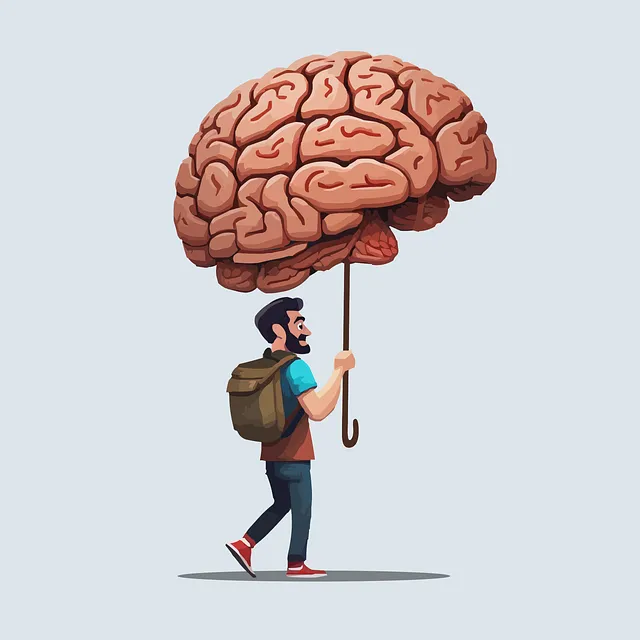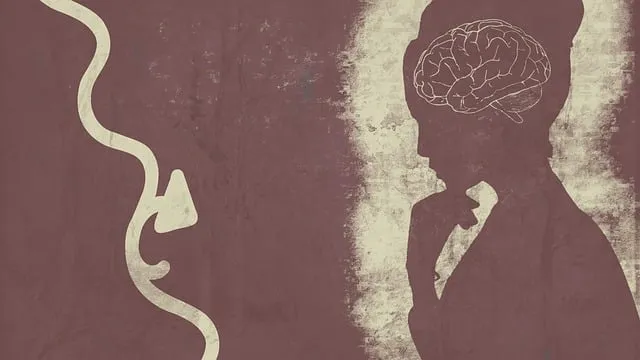The Kaiser Permanente mental health facility in Northglenn offers a holistic approach to mood regulation, combining evidence-based strategies like CBT and mindfulness with lifestyle adjustments such as nutrition, exercise, and sleep. They emphasize the importance of community outreach, social connections, and self-care practices for emotional well-being. Their comprehensive care includes integrated coaching programs that empower individuals to navigate challenges with resilience and promote sustainable wellness solutions throughout their communities.
At Kaiser Permanente Mental Health Facility Northglenn, we explore effective mood regulation strategies to unlock emotional balance. This comprehensive guide delves into various techniques proven to manage moods, drawing from cognitive behavioral therapies, mindfulness practices, lifestyle adjustments like nutrition and exercise, and the power of social connection. Discover how these integrated approaches can enhance well-being at Kaiser Permanente Mental Health Facility Northglenn.
- Understanding Mood Regulation: Unlocking Emotional Balance at Kaiser Permanente Mental Health Facility Northglenn
- Cognitive Behavioral Techniques: A Powerful Tool for Managing Moods
- Mindfulness and Meditation Practices for Daily Mood Enhancement
- Lifestyle Adjustments: Nutrition, Exercise, and Sleep for Optimal Mood Regulation
- Social Connection and Support: Building a Network for Emotional Well-being
Understanding Mood Regulation: Unlocking Emotional Balance at Kaiser Permanente Mental Health Facility Northglenn

At Kaiser Permanente Mental Health Facility Northglenn, understanding mood regulation is a cornerstone of their approach to emotional well-being. This facility recognizes that mental wellness involves more than just managing symptoms; it’s about unlocking the intricate balance of emotions to foster a fulfilling life. They employ evidence-based strategies tailored to individual needs, focusing not just on treating disorders but also on enhancing overall emotional healing processes.
Through a holistic lens, Kaiser Permanente Northglenn integrates various techniques from cognitive behavioral therapy to mindfulness practices, ensuring comprehensive care. Their mental health policy analysis and advocacy efforts underscore the importance of accessible and effective treatments, reflecting their commitment to transforming lives and communities through sustainable mental wellness solutions.
Cognitive Behavioral Techniques: A Powerful Tool for Managing Moods

Cognitive Behavioral Techniques (CBT) offer a powerful tool for managing moods at the Kaiser Permanente mental health facility in Northglenn. By focusing on identifying and challenging negative thought patterns, CBT empowers individuals to change their emotional responses. This approach, backed by extensive research, has proven effective in treating various mental health conditions, such as depression and anxiety. At the Kaiser Permanente mental health facility, therapists utilize CBT to help clients develop coping strategies that enhance self-care practices and overall well-being.
Community outreach program implementation and empathy building strategies are integral parts of this process. By engaging with the community, the facility promotes a sense of belonging and support, which can significantly contribute to mood regulation. Through these integrated approaches, individuals not only gain control over their moods but also learn valuable skills for maintaining emotional balance in their daily lives.
Mindfulness and Meditation Practices for Daily Mood Enhancement

Mindfulness and meditation practices have emerged as powerful tools for daily mood enhancement, offered by leading mental health facilities like Kaiser Permanente Northglenn. These ancient techniques focus on cultivating present-moment awareness, helping individuals to better regulate their emotions and maintain emotional balance. Research has shown that regular mindfulness practice can significantly reduce symptoms of anxiety and depression, fostering overall mental wellness.
At the core of these practices lies the development of emotional intelligence—the ability to recognize, understand, and manage one’s own emotions as well as those of others. By integrating mindfulness into daily routines, whether through guided meditation or mindful breathing exercises, individuals can cultivate positive thinking and a deeper sense of inner calm. Kaiser Permanente mental health professionals often incorporate these strategies within their coaching programs, helping clients to navigate life’s challenges with greater resilience and emotional agility.
Lifestyle Adjustments: Nutrition, Exercise, and Sleep for Optimal Mood Regulation

At the Kaiser Permanente mental health facility in Northglenn, experts emphasize the power of lifestyle adjustments as foundational strategies for mood regulation. Nutrition plays a significant role; incorporating foods rich in omega-3 fatty acids, vitamins B and D, and magnesium can boost brain health and stabilize moods. Regular exercise is another key component, releasing endorphins that alleviate stress and promote a sense of well-being. Adequate sleep, typically 7-9 hours for adults, is essential for regulating emotions and cognitive functions.
These lifestyle changes, advocated by mental health professionals, are integral to the comprehensive approach offered at Kaiser Permanente. They complement traditional therapy and medication, providing individuals with practical tools for managing their mental well-being. This holistic perspective, incorporating Self-Awareness Exercises and even Community Outreach Program Implementation, empowers folks to take an active role in their mental health journey, fostering resilience and enhancing overall mood regulation.
Social Connection and Support: Building a Network for Emotional Well-being

Building a strong social network is an essential aspect of emotional well-being, as recognized by experts at the Kaiser Permanente mental health facility in Northglenn. Social connection provides individuals with a sense of belonging and support, which are crucial for maintaining a stable mood and overall mental health. Cultivating meaningful relationships with family, friends, or even within supportive communities can act as a buffer against stress, anxiety, and depression.
At the Kaiser Permanente facility, they emphasize that having a reliable support system allows individuals to share their feelings, seek guidance during crises (using resources like Crisis Intervention Guidance), and gain different perspectives on life challenges. This social support network can also facilitate Self-Care Routine Development for Better Mental Health by encouraging healthy habits and providing motivation. Moreover, mental health advocates often highlight the importance of community engagement and policy analysis and advocacy to ensure accessible resources and services, such as those offered at Kaiser Permanente, are available to all who need them.
In conclusion, mood regulation is a multifaceted process that can be effectively managed through a combination of evidence-based strategies. From cognitive behavioral techniques at Kaiser Permanente Mental Health Facility Northglenn to mindfulness practices and lifestyle adjustments, individuals have access to powerful tools for enhancing emotional balance. Fostering strong social connections further underscores the importance of community in navigating and maintaining optimal mental health. By integrating these strategies into daily life, folks can revolutionize their emotional well-being and lead more fulfilling lives.






